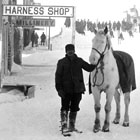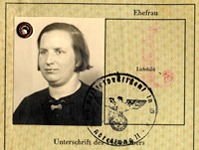September 11 Digital Archive

This archive records the histories of people affected by the terrorist attacks of September 11, 2001 (9/11), including more than 150,000 stories and more than 40,000 emails from around the world. The site is constantly growing and the sources are viewable through galleries. Items include still images, with photographs, digital art, and artwork; moving images, with video files and digital animations; documents, including flyers, reports, and articles; and stories, emails, and voicemails.
The supporting information is strong as well. The FAQ section includes numerous links with information about the chronology and a timeline, including flight paths and building collapses; information about hijackers, victims, and rescuers; memorials and rebuilding efforts; and the 9/11 Commission Report. Visitors are invited to submit their own recollections.


